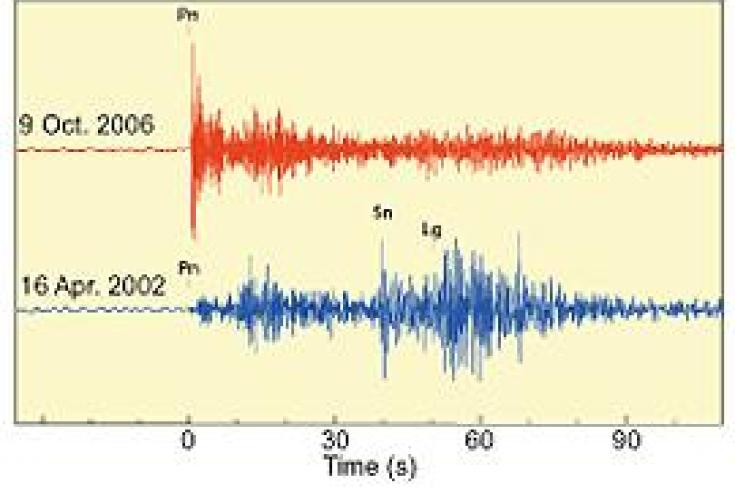CTBTO Executive Secretary visits Republic of Korea and Indonesia
Executive Secretary meets high-ranking officials, opens On-Site Inspection workshop in Republic of Korea

Seismograms for the 2006 DPRK declared nuclear test and from an earlier earthquake, recorded at primary seismic station PS31 at Wonju, Republic of Korea.
Indonesia hosts workshop on security and scientific benefits of CTBT

CTBTO Executive Secretary in an interview on the Indonesian "Metro TV" - Channel
"The CTBT (...) will be an important factor for the long-term survival of humankind: it will greatly help keep us safe from the ultimate tragedy of nuclear holocaust. That makes it worth all our best efforts to understand it and make it part of our national agenda."
Tsunami Arrangement signed with Indonesia

Most IMS waveform data are received with a maximum delay of 30 seconds from when the station detects the signal.
“The [CTBTO’s] International Monitoring System sends the speediest, most reliable and highest quality data (…) within 30 seconds, around 90 percent of the information reaches the tsunami warning centre.”
Inauguration of Indonesian Tsunami Early Warning System

Inauguration of the Indonesian Tsunami Early Warning Center on 11 November 2008
Indonesia hosts six monitoring stations of the CTBTO’s IMS. All six are auxiliary seismic stations such as station AS43 in Parapat in Northern Indonesia. Four of these stations have already been established and certified, with the remaining two under construction. Indonesia has also shown strong support for the CTBT byfor example, attending previous Article XIV-Conferences aimed at facilitating the Treaty’s entry into force and by fully meeting its financial obligations to the CTBTO.

U.S. President-elect Barack Obama supports U.S. ratification of the CTBT
"Just as I will work with the US Senate to secure ratification of the CTBT at the earliest practical date, I will prioritise diplomatic efforts with India and Pakistan to encourage them to move beyond their moratorium on nuclear testing toward the ratification of the treaty."
12 Nov 2008
